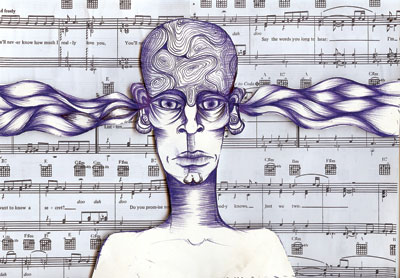All Nonfiction
- Bullying
- Books
- Academic
- Author Interviews
- Celebrity interviews
- College Articles
- College Essays
- Educator of the Year
- Heroes
- Interviews
- Memoir
- Personal Experience
- Sports
- Travel & Culture
All Opinions
- Bullying
- Current Events / Politics
- Discrimination
- Drugs / Alcohol / Smoking
- Entertainment / Celebrities
- Environment
- Love / Relationships
- Movies / Music / TV
- Pop Culture / Trends
- School / College
- Social Issues / Civics
- Spirituality / Religion
- Sports / Hobbies
All Hot Topics
- Bullying
- Community Service
- Environment
- Health
- Letters to the Editor
- Pride & Prejudice
- What Matters
- Back
Summer Guide
- Program Links
- Program Reviews
- Back
College Guide
- College Links
- College Reviews
- College Essays
- College Articles
- Back
Redefining Today's Music Festivals
With Lollopoza just around the corner, what better time to discuss the rise of this “new” phenomenon that we call music festivals. Yes, it may not be a new concept, but from its inception to now its climax, music has been the one thing that has been redefined in impalpable ways. Therefore, it is somewhat “new.” Music is not and was not just about words or sounds; it is about ideas and translating those ideas into reality. We have religious festivals. We have food festivals. We have film festivals. We have ski festivals. We have comedy festivals. We have hot air balloon festivals. We have Shakespeare festivals. What do these festivals really epitomize if every year ideas have remained stagnant through orthodox traditions rather than progressive notions of change? Music has been the trailblazer and voice of our ideas and generations of ideas. And music festivals have been the tangible symbol of these ideas.
The 1960’s was a period of hippies, LSD, psychedelic music, desegregation, progressivism, rebellion, experimentation, and most importantly change. The creators of Woodstock Music Festival of 1969 had no actual intention to blow up the social scene of the 1960’s with this gathering. They were naively trying to create a profit by using this climate to their advantage. However, Woodstock only became the catalyst to all of these so-called controversies. The music of the time encapsulated all of these ideas. But it was the music festival itself that represented the people who idolized these themes and no longer wanted to be like their parents. Woodstock may have been about the music, but it was mostly about the individuals who sought change.
Mysteryland Music Festival was held on the same grounds as Woodstock this year. Some prominent ideas that seemed flagrant in the 1960’s have curtailed and become almost trivial. Other ideas have translated to this generation and are very well alive, such as women's reproductive rights. I can’t help but notice that just as Woodstock represented that generation, Mysteryland represents today. The only difference is that back then they were known as hippies. Now, we are known as progressives. The concept of the music festival has yet to diminish. It symbolizes change. Within that realm of change, it continues to redefine itself and the overall definition of what it means to be “new.”

Similar Articles
JOIN THE DISCUSSION
This article has 3 comments.

40 articles 4 photos 68 comments
Favorite Quote:
Anything that can be done, can be undone. ~Scarlet City<br /> http://eepurl.com/dcyZMn